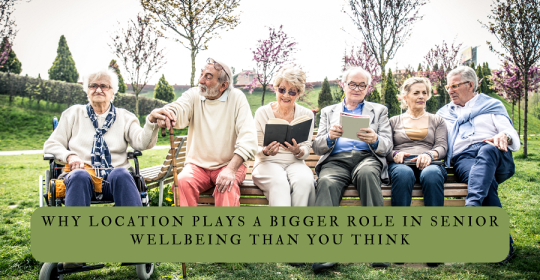- Almost two-thirds (60%) of young people feel their generation – The Ghosted Generation – will be permanently disadvantaged by the pandemic
- Two thirds (65%) believe competition to get a job has increased so much it feels impossible.
- Nearly a third (29%) of young people say the pandemic has made them less likely to continue with further education
- Over half (58%) of young people feel that the Government has failed them in its handling of the pandemic.
- Co-op calls on government to ensure young people are actively considered in decision-making, with suggestion of the development of a Youth Strategy and introduction of a Youth Minister in cabinet with cross departmental responsibility
A major new study from the Co-op, looking at the attitudes, life chances and aspirations of young people, the Ghosted Generation, has revealed that children as young as 10 years old think the pandemic will affect their chances for the rest of their life.
In one of the largest post-pandemic studies of its kind, with over 5,000 10-25-year olds, the findings uncover that almost two thirds (60%) 13-25-year olds feel their generation – The Ghosted Generation – will be permanently disadvantaged by the pandemic.
The devastating impact of COVID on their education, is clearly highlighted in the findings. Amongst school aged children, the research shows nearly half (47%) of 10-15-year olds feel they have fallen behind in the past year, with almost two thirds (59%) also feeling the pressure to ‘catch up’ quickly. And just under a third of (29%) young people say the pandemic has made them less likely to continue with further education entirely.
And when it comes to work and careers, hopes are also dashed, with over half (55%) feeling young people have been pushed to the back of the queue on job opportunities, and over a quarter (28%) of 16-25 year olds feeling that the pandemic has ruined their career dreams. Two thirds (65%) also believe that competition to get a job has increased so much it feels impossible.
As a result, over half (58%) of young people feel that the Government has failed their generation in its handling of the pandemic, and as many as one third (37%) feel the odds are now stacked against them.
Despite the impact of the pandemic, the research still shows that young people do have ambitions and aspirations for the future. However, there is a hope deficit that has emerged between the ambition of young people and their belief in being able to reach these goals. The findings highlight 90% of young people aspire to be financially secure, yet only two-thirds (67%) believe they will achieve this. And over four fifths want to own their own house (83%), but again only two-thirds (66%) feel this is within their reach for them. Other key goals include earning more than their parents with over three quarters aspiring to this goal (74%) but only 60% feeling this is within their grasp, and over half who want to run their own business in the future (53%), but only two fifths (42%) who feel this is possible.
In addition, the research demonstrates the key challenges ahead with the levelling up agenda, with many young people feeling their life path is already set by the age of 20. Overall, the results show that 39% of 20-25-year olds feel their future path has already been decided for them. This finding is even more stark amongst young ethnic minorities, with over two-fifths of Black young people (42%), and of Asian young people (40%), believing their future path has already been decided for them, compared to only one quarter (28%) of White young people.
Steve Murrells, CEO of Co-op Group, said: “Young people are the DNA of the future of this country, and we simply cannot have a situation where the majority of them - the Ghosted Generation - feel like they cannot change their path or improve their life chances. And where Black and Asian young people are more likely to feel that way.
“This research shows the ambition is there and we see firsthand that talent is spread in every community, but opportunity is not.
“At the Co-op we have made it our priority to listen to what young people need to help more of them get on in life, no matter where they live or their background. That's why we have an active Young Members’ Board for our business and are continually looking for new ways to develop opportunities for them, including our new Apprenticeship Matchmaking Levy scheme and innovative virtual work experience programme.
However, to make up the lost ground, truly build back better and make sure no young person or community gets left behind, we need urgent bold, joined up action across government, business and education to make sure young people are actively considered in decision making. We believe changes, such as the development of a government youth strategy and introduction of a Youth Minister in cabinet with cross departmental responsibility, would better enable the voices and needs of young people to be better heard and met.”
When young people were asked what they viewed would be the most helpful for their future, the research identified the most popular recommendations as youth hubs in local areas to support with their education/training and careers, a Youth Productivity Index to help the Government understand where to invest money, and personalised and holistic support for young people out of education/employment/training and for those most at risk of long-term unemployment.
The Rt. Hon. Justine Greening said: "This is vital research by the Co-op because meeting the ambitions and aspirations of young people is at the heart of what levelling up in our country means. This research shows us what that aspiration looks like for young people - training and careers, the chance to start a business, owning your own home, but also where they see the challenges - for example, getting good advice at the right time.
“If we can work collectively to tackle those challenges then we can make a real difference improving the futures of young people, and in doing so, the future of the country as a whole. The Co-op is a brilliant example of a purpose-led organisation which recognises its wider role within the community and is determined to now work with others to drive change on the ground.”
Tommy Kirkwood from Co-op’s Young Members Board said: “As a young person who represents the voices of other young members in the Co-op and throughout communities, it’s clear that compared to other generations, young people have been disproportionately impacted upon by the pandemic.
To ensure all young people feel supported in the aftermath of the pandemic, those in charge need to let our voices be heard and listen, giving young people a say about their future, and the future of our society.”
Jack Parsons of The Youth Group said: “Many young people are feeling hopeless, unworthy and valueless. Young people have so much value which is why now is the time to invest in ensuring a great future is within reach. We all have a role to play to change the narrative and I am excited to see the work the co-op will undertake to reduce these worrying stats that have come directly from young people."
In response to the findings, Co-op has worked with leading charities and organisations to provide a key resource hub for young people to help them take control of their futures, with input from The Youth Group, MIND, Inspire, SAMH, Youth Endowment Fund, Dial Global, Saeed Atcha MBE and Hope Collective.





